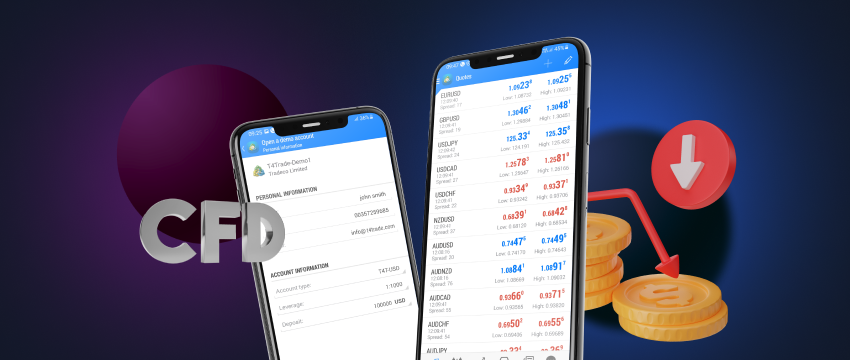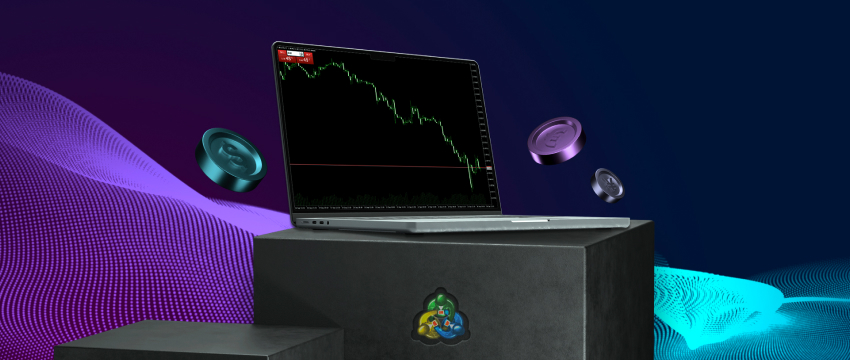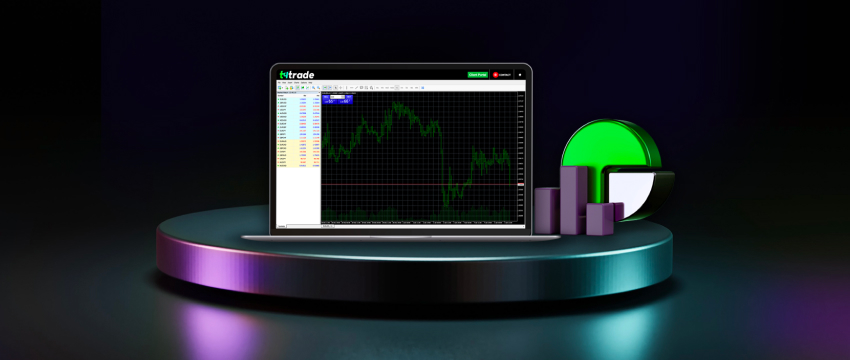The simple answer to this question is yes, CFDs can go into the negative. However, if your broker sets the terms, negative balance protection may limit losses for retail accounts. In this article, we’ll look at CFDs in a little more depth and how they can potentially go negative.
CFDs – what are they?
Contracts for Difference (CFDs) are contractual agreements between a CFD broker and a trader. The CFD essentially gives the trader access to an underlying asset without the need to own that asset. Instead, via this agreement. The trader speculates on the price movement of that asset in an attempt to make a profit from that fluctuation.
The asset differs depending on the CFD, providing the trader with access to a wide range of financial markets. This includes stocks, commodities, currency pairs, metals, and many more. Consequently, the ability to diversify one’s trading portfolio also increases trading opportunities.
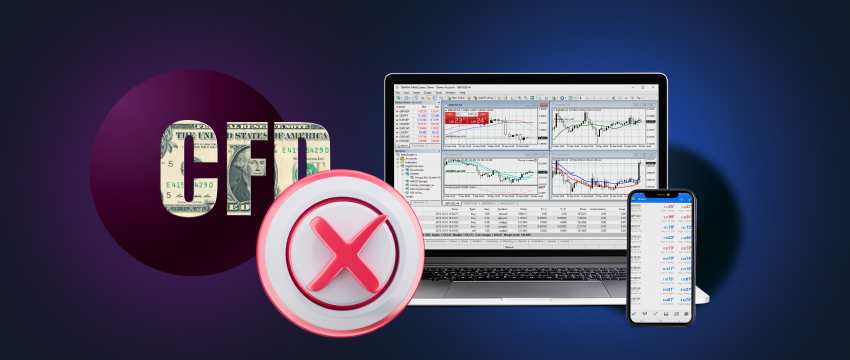
CFDs and leverage
CFD trading has become an incredibly popular way to trade in many countries worldwide. However, this Forbes article reports that highly leveraged derivatives often come with a warning. Adverse price movements in relevant markets can lead to substantial losses for consumers.
In fact, the same article goes on to state that around 80% of customers lose money when investing in CFDs. So why the appeal among global brokers? Well, to some degree, the use of leverage. You see, leverage is the quintessential double-edged sword because. While it can significantly magnify losses, it can also amplify the wins.
How does leverage work?
Let’s look at the core tenets of leverage to gain a better understanding of its power:
- In the context of CFD trading, leverage usually refers to a sum of money a trader “borrows” from a broker. Increase the size of a position (a trade). In other words, it gives the trader the ability to open and manage a larger position. In the market rather than what they could do with their capital alone.
- Normally expressed as a ratio of multiples (e.g., 2x, 5x, etc), leverage determines the size of your position in comparison to your capital. For example, if you have $100 and make use of 2x leverage, you can control a position worth $200.
So where does the risk of a CFD becoming negative lie?
Well, let’s zoom out and consider the inherent characteristics of CFDs. Traders can use Contracts for Difference to trade many different assets. Each of these financial markets presents its challenges: volatility, and aggressive or unexpected price movements. Asset values are at risk of rising and falling, not just within a trading day. But within minutes and sometimes even seconds. This usually comes about due to sudden geopolitical instabilities, war, environmental disasters, and economic news. In addition to releases, investor sentiment, industry sentiment, and many other factors.
In the event of a market impact, trades can quickly take an adverse turn. Potentially turning CFDs negative if not promptly handled. Adding leverage to the mix exacerbates potential losses exponentially. There are brokers, however, that offer negative balance protection to their traders. One such broker offering negative balance protection is T4Trade. Which, as part of their agreement with a client, provides this protection, ensuring that clients never lose more than their total deposits, provided it isn’t manipulated.
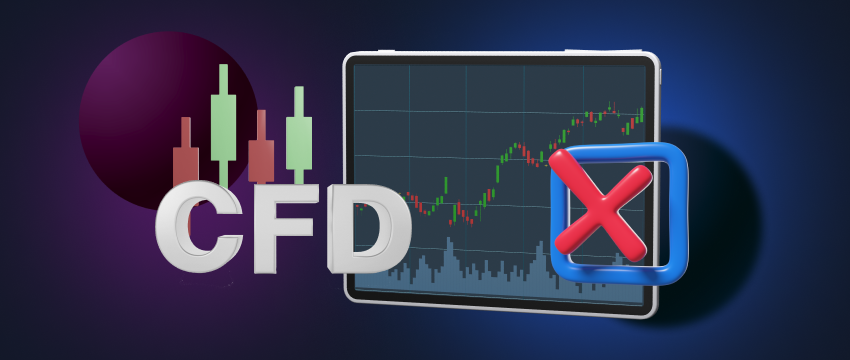
How are losses leading to a potential negative balance being mitigated?
CFD traders understand the risks involved in trading Contracts for Difference. They will usually adopt a strategic risk management plan to protect themselves from losses that have the potential to accumulate incredibly quickly. Some of the most popular ways they do this is by employing techniques like stop-loss and take-profit orders to reduce the risk of losing large sums of capital. This is often complemented by trailing stops and guaranteed stops, with orders automatically triggered when the price of a specific asset reaches a particular threshold.
Margin calls
If the market starts moving against a trader, the broker may request them to deposit additional funds to cover the losses. This notification by the broker is called a margin call. Having a robust understanding of margin requirements is a vital component of CFD trading, especially considering how highly leveraged CFDs are. To avoid margin calls, risk management must be made a priority. This also includes paying attention to market movements, staying vigilant of news and events that could cause price volatility, not overtrading and losing control over your positions, and leaving arrogance or overconfidence at the door.
Learn more about CFD trading through a demo trading account
CFD trading is not for the faint-hearted. It requires skill, expertise, and knowledge. One of the best ways to acquire all three is by signing up for a demo trading account. Also, putting theory and concept into practice. A demo account offers a virtual trading environment for an aspiring CFD trader to practice how to trade CFDs.
The trader is allowed to analyze real-life market conditions and learn how to use technical analysis to read charts, as well as interpret technical indicators.
For a beginner trader still learning the ropes, a demo trading account allows users to test different CFD trading strategies and techniques using virtual funds, thereby not putting their own money at risk.
This in turn offers a way for the trader to build up their trading psychology, giving them the confidence and the ability to handle trading in a way that is more about informed decision-making rather than based on feelings like fear, greed, or impulsion.
Other ways to acquire a trading-related education
There are many ways for a CFD trader to expand their knowledge and refine their proficiency in trading. Let’s explore some of the most popular educational resources used by traders worldwide:
- Blogs for valuable insights into key financial markets and important trading fundamentals.
- E-books, for trading tips and strategies.
- Videos-on-demand for trading tips and market insights.
- البودكاست, ندوات عبر الإنترنت, and seminars to learn from the experts.
- Online community forums to engage with your peers.
T4Trade Academy also gives global traders access to a variety of resources like those listed above to become more skilled at trading. Delivered by a team of expert analysts and researchers, these educational tools provide a variety of tips, insights, concepts, ideas, and strategies.
Complementing these resources is also an innovative economic calendar which is a particularly useful tool for CFD traders attempting to monitor global economic news and events.
The calendar helps a CFD trader stay up to date with key market-moving economic indicators like Gross Domestic Product (GDP), Industrial Production Index (IPI) (US), Consumer Price Indices (PMIs), and more.
In addition, T4Trade also offers daily (Monday – Friday) commentary via Live TV to stay on top of market trends, learn trading tips, and identify trading opportunities with in-depth analysis from the broker’s market analysts.

Become a CFD trader with T4Trade
T4Trade seeks to make CFD trading a top-tier experience for all of its traders. The broker attempts to do this in several different ways. This includes a service offering comprised of high-quality flexible trading, fast execution of trades, competitive spreads, quick withdrawals and/or deposits, and flexible leverage.
A dynamic multilingual client support team boosted this effort, striving to provide optimal assistance in 24/5 by addressing many of the most pressing challenges that traders face. T4Trade also provides a range of trading accounts to choose from, catering to the needs of different traders, regardless of expertise.
إخلاء المسؤولية: لا تعتبر هذه المعلومات بمثابة نصيحة استثمارية أو توصية استثمارية، بل هي مجرد مادة تسويقية
